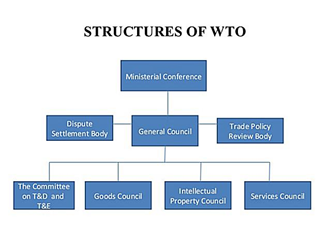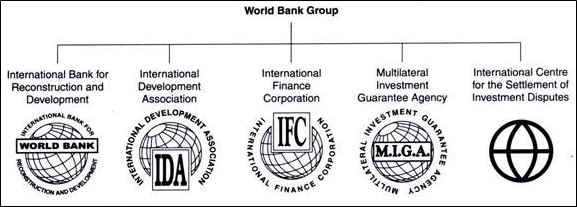1. Asian Development Bank (ADB) (HQ: Manila, Philippines)
-
- It was established in 1966 as a financial institution that would be Asian in character and foster economic growth and cooperation in one of the poorest regions in the world.
- It is modelled closely on lines of the World Bank having a similar weighted voting system where votes are distributed in proportion with members’ capital subscriptions.
- The bank admits member countries from Asian region and non-regional developed countries.
- ADB now has 68 members of which 49 from within Asia and Pacific while remaining 19 from outside.
- India is a founding member and the 4th largest shareholder.
- As of 31 December 2020, Japan and the United States each hold the largest proportion of shares at 15.571%. China holds 6.429%, India holds 6.317%, and Australia holds 5.773%.
- It gives loans to: Public Sector (Government), Private Sector
2. New Development Bank (NDB) (HQ: Shanghai)
-
- The New Development Bank (NDB), formerly referred to as the BRICS Development Bank, is a multilateral development bank established by the BRICS states.
- It was founded in 2014.
- Its focus is to finance infrastructure and sustainable development in emerging markets and developing countries.
- Members:
- Founding Members: Brazil, Russia, India, China, South Africa
- New members: Egypt, Ethiopia, Iran, and the United Arab Emirates
-
- It supports sovereign and non-sovereign projects through loans, guarantees, equity participation and other financial instruments.
Currency Reserve Arrangement (CRA)
The BRICS Contingent Reserve Arrangement (CRA) is a financial mechanism established by the BRICS countries (Brazil, Russia, India, China, and South Africa) to provide a pool of foreign currency reserves that member countries can draw upon in case of balance of payments (BoP) crises.
3. Asian Infrastructure Investment Bank (AIIB) (HQ: Beijing)
-
- It is the world’s second largest multilateral financial institution that aims to collectively improve economic and social outcomes in Asia.
- Total Members: 109 countries
- The starting capital of the bank was US$100 billion, equivalent to 2⁄3 of the capital of the Asian Development Bank and about half that of the World Bank and has been seen since its inception as a potential rival or an alternative to the World Bank and the International Monetary Fund (IMF).
- China is the largest shareholder (more than 25%) in AIIB followed by India and Russia
- Japan and the US are not its members.






